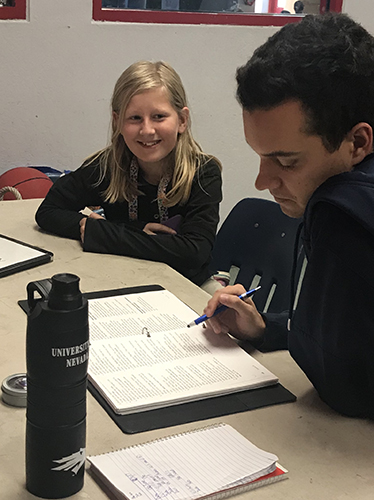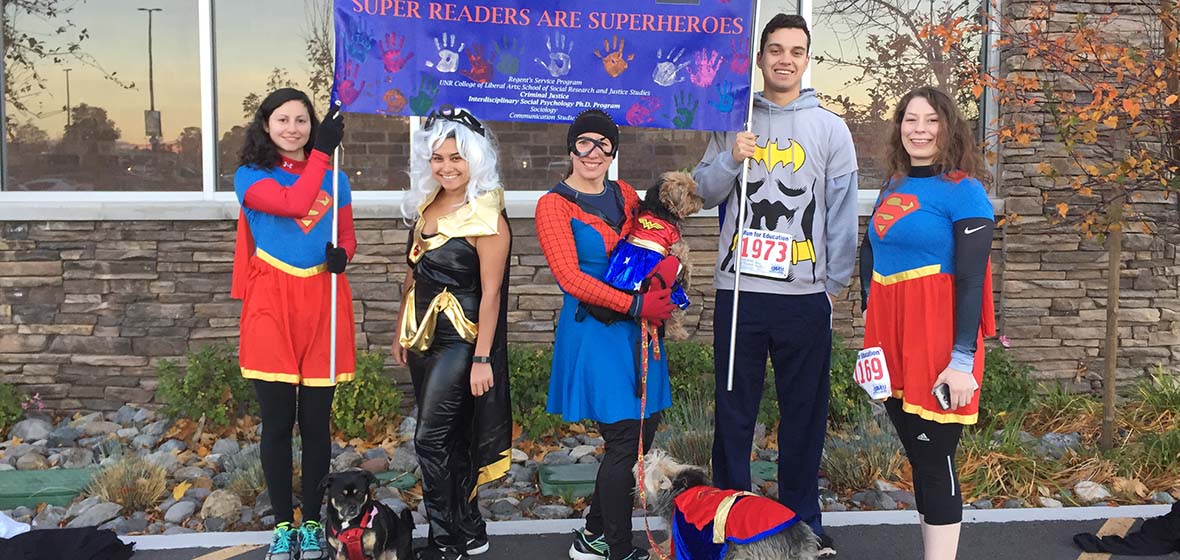When one hears literacy program, it's not automatic to think about the criminal justice department. For Professor Monica Miller and her "Super Readers are Super Heroes" team, one of their main goals is to help children learn to read and get caught up in their education with the hope that it helps kids stay out of the legal system. Miller's literacy program is designed by McGraw Hill and has a series of 30 lessons for kids to ideally take over a 15-week period. Graduate students from criminal justice, communication studies, sociology and social psychology work with children at the Boys and Girls Club, where the population is mostly made up of low-income kids and foster children.
Miller said many of the kids they work with have behavioral or emotional issues and are already in the legal system. "A lot of those factors, combined with low literacy, make a student more likely to become involved with the legal system at some point." Miller said it's important that this literacy program helps kids improve their reading levels so they can do better in all subjects at school. "We don't want them to think of reading as a bad thing - we want to encourage them to stay in school," Miller said.

Evan Murphy, graduate student in the social psychology, Ph.D. program works with student at the Boys & Girls Club.
The Super Readers are Super Heroes program is grant-funded by the Regent Service Grant and supports five graduate students to give one-on-one lessons two-to-three times a week at the Boys and Girls Club. Participants in the program are usually between third and seventh grades. Although, most of the kids who start the program lack structure and discipline, so it usually takes longer than 15 weeks for them to complete. Miller and her team offer a beginner's level program and an advanced level, so students could take it twice. The literacy program has been running for four years at various sites around Reno, Nev., all within close proximity of the University.
Participants are given certificates and awards for milestones and achievements as they advance in the program. Miller explained that this is often the first time these kids feel like they're good at something. "It's the tiny little victories; when the student first comes to the program they won't even read aloud, then they come back and say they volunteered to read in class." This is reason enough for the literacy program to continue to apply for funding each year to help the kids.
Not only does the literacy program benefit the community, but it helps graduate students in the College and interdisciplinary programs as well. Graduate students are able to get real-world experience to help with their social issues research. Miller said working with populations at risk and performing program evaluations should help these graduate students find jobs after graduation.












